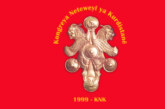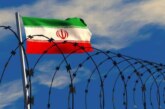
Kurdistan is a dream.
In fact, it’s one of the most important dreams of modern times.
It’s a game changer. An oasis. And a battlefield.
It also has many manifestations, depending on who’s doing the dreaming. And this has seen contradictory forces from across the political spectrum flock towards it.
But it’s not just a dream.
It doesn’t officially exist, partly because international powers only see maps and numbers rather than people. But however much the regimes of Turkey, Syria, Iran and Iraq have tried to ignore the dreams of the Kurdish people, they persist. And slowly but surely, they have been breaking down the walls separating them from reality.
Can the chains of the past be broken?
It’s always hard to condense many centuries of complex politics into just a few words – let alone in an accessible way. But at the very centre of the ‘Kurdish Question’ is the search for freedom – a struggle common to people across the globe who want control over their own destinies.
Human history has been plagued by strong, deceptive or exploitative rulers who seek to control the people around them. To obtain and retain power, they’ve invoked fear of religious, ethnic, or ideological enemies – at home and/or abroad. And, of course, they’ve claimed to be the only ones who know how to defeat these enemies. But sooner or later, their oppressive nature has always been exposed.
But would a break from his history not be doomed to failure? Are humans not selfish by nature and destined to fight, deceive and exploit each other perpetually?
Well, apart from being excessively pessimistic, this viewpoint is also inaccurate. Scientific studies have shown that cooperation is just as much a part of human nature as competition. Our ancestors, for example, realised that they would have a much better chance of survival if they worked together.
In other words, the fight for free and peaceful coexistence with other humans is not at all pointless. If anything, it represents a return to a part of human nature that has been neglected for too long. And progressive Kurds are currently at the forefront of this fight in the Middle East, along with their allies.
The Kurdish fight for freedom
After the fall of the Ottoman Empire at the start of the twentieth century, Kurdish leaders generally opted to cooperate with their Turkish, Arab and Persian neighbours. But with the growing popularity of ethnic nationalism in the newly-created countries of Turkey, Iran, Syria and Iraq, Kurds increasingly became a side-lined and oppressed minority.
Resistance soon followed, but war often achieved little. For this reason, when Abdullah Öcalan – the leader of the Kurdistan Workers’ Party (PKK) – was captured in 1999, a slow shift in consciousness gained speed in Kurdish communities – particularly in Turkey and Syria. The PKK soon launched unilateral ceasefires and sought negotiations with the Turkish State, in an attempt to avoid more war and reach a peaceful end to the State’s denial of Kurdish rights.
Öcalan argued in 2011 that, while all humans had a right to self-determination, the creation of a nation state was not synonymous with the creation of freedom. The latter, he said, would be achieved by encouraging grassroots participation in political decision-making.
In 2012, the largely-Kurdish areas of northern Syria saw how foreign powers were funding chauvinist jihadi forces against the authoritarian nationalist government of Bashar al-Assad. As the conflict spiralled out of control, these communities chose not to join either side. Instead, led by the PKK’s Syrian affiliates (the PYD), they focused on defending their own territory. This was the beginning of the Rojava Revolution, which sought to forge an alternative to both Islamism and nationalism in the middle of a gruesome warzone.
A bright light in dark times
In Rojava, a ‘Charter of Social Contract’ was published in January 2014. On behalf of all of the ethnic and religious groups living in the region, the contract sought to enshrine people’s right to self-determination, self-defence, religious freedom, and gender equality. It also sought to protect the environment and provide education, healthcare, and housing to all Rojava’s inhabitants.
But while the revolutionaries in Rojava didn’t seek independence from Syria, they did seek autonomy from the regime in Damascus. Opposing the concept of centralised rule, they began to forge an assembly-based democracy based on citizens making decisions for themselves. They also encouraged the formation of trade unions, local cooperatives, and collectives. ROAR Magazine described in 2014 how Öcalan’s dream was to replace capitalism, the nation state, and industrialism with a “democratic nation, communal economy, and ecological industry”. In Rojava, this would mean autonomous and sustainable economics, cooperation between different communities, and democracy in Syria as a whole.
In Rojava, it has been clear that Kurdistan is no longer a dream only for Kurds. It is a dream of humanity, self-rule and multicultural cooperation – representing a significant break from a history of imperialist puppet regimes, nationalist dictators, and elites that have warped religious ideas to suit their own interests.
Change has been underway in the Middle East ever since late 2010. A few dictators have fallen, but others have dug in. Citizens have found their voices, but have seen them taken away again. And while the crimes of Western allies like Saudi Arabia and Israel have been ignored, the crimes of Western enemies have been used as an excuse for even more death and destruction. In this environment, it turns out that the biggest transformation has occurred in Rojava – which has rapidly become a modern representation of humanity’s search for freedom, social justice, and peaceful coexistence.
But the battle is far from won. Unless action is taken to stop the Wahhabi ideology of Daesh being spread around the world by the Saudi royal family, the movement will not be completely defeated. And until the pluralistic and directly-democratic model of Rojava is accepted as the best solution for sectarian conflicts in the Middle East, the fighting will continue.
In the Kurdish dream that is slowly becoming reality, we all need to be protagonists. Whatever we look like. Whatever language we speak. And whatever belief system we follow. For without our support and participation, the end result of the conflicts ravaging the Middle East today may look much more like the dream of the rich and powerful than that of the exploited and oppressed.
The PKK and its allies are the best hope for peace, justice and democracy in the Middle East today. Let’s stand by them in their struggle.




